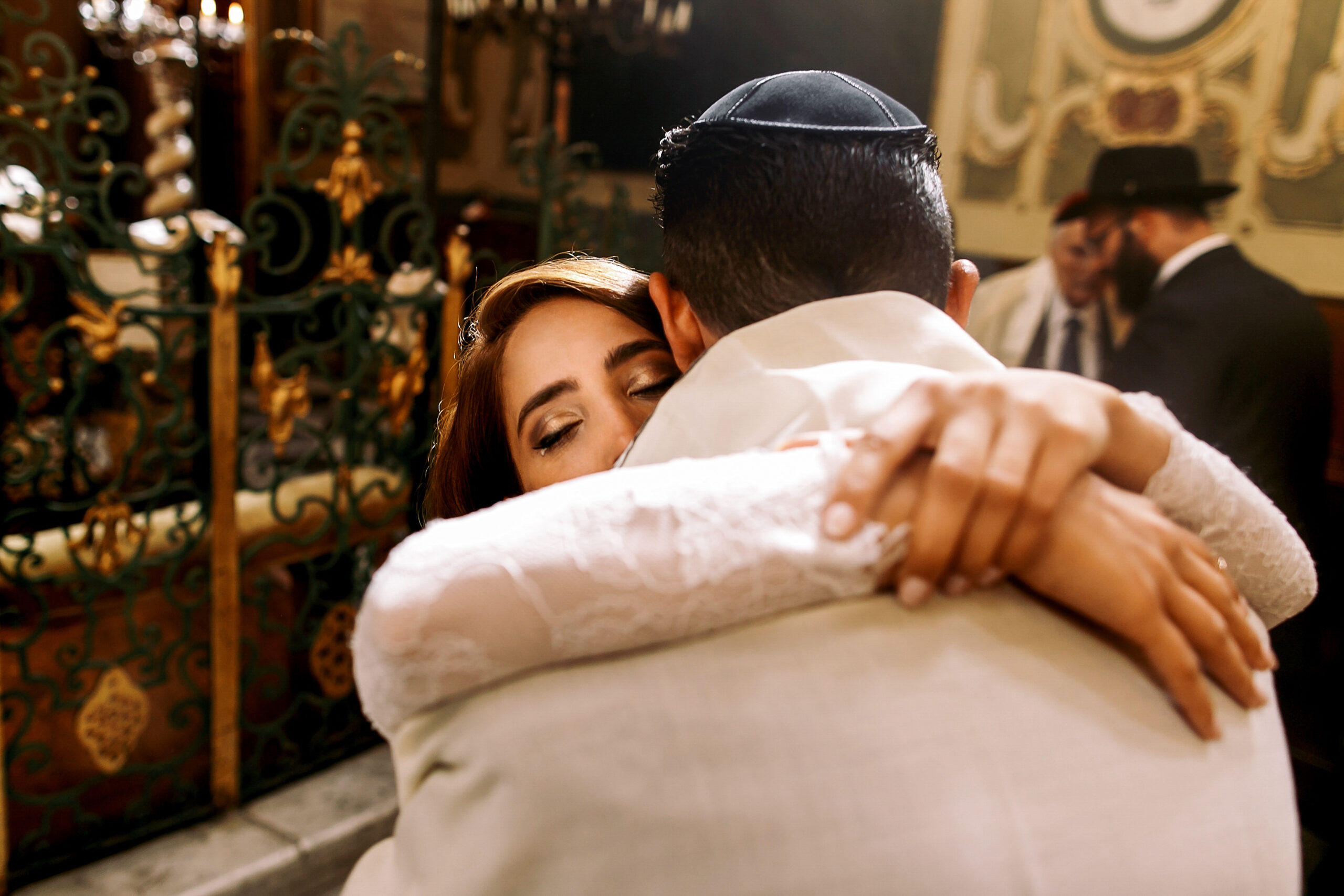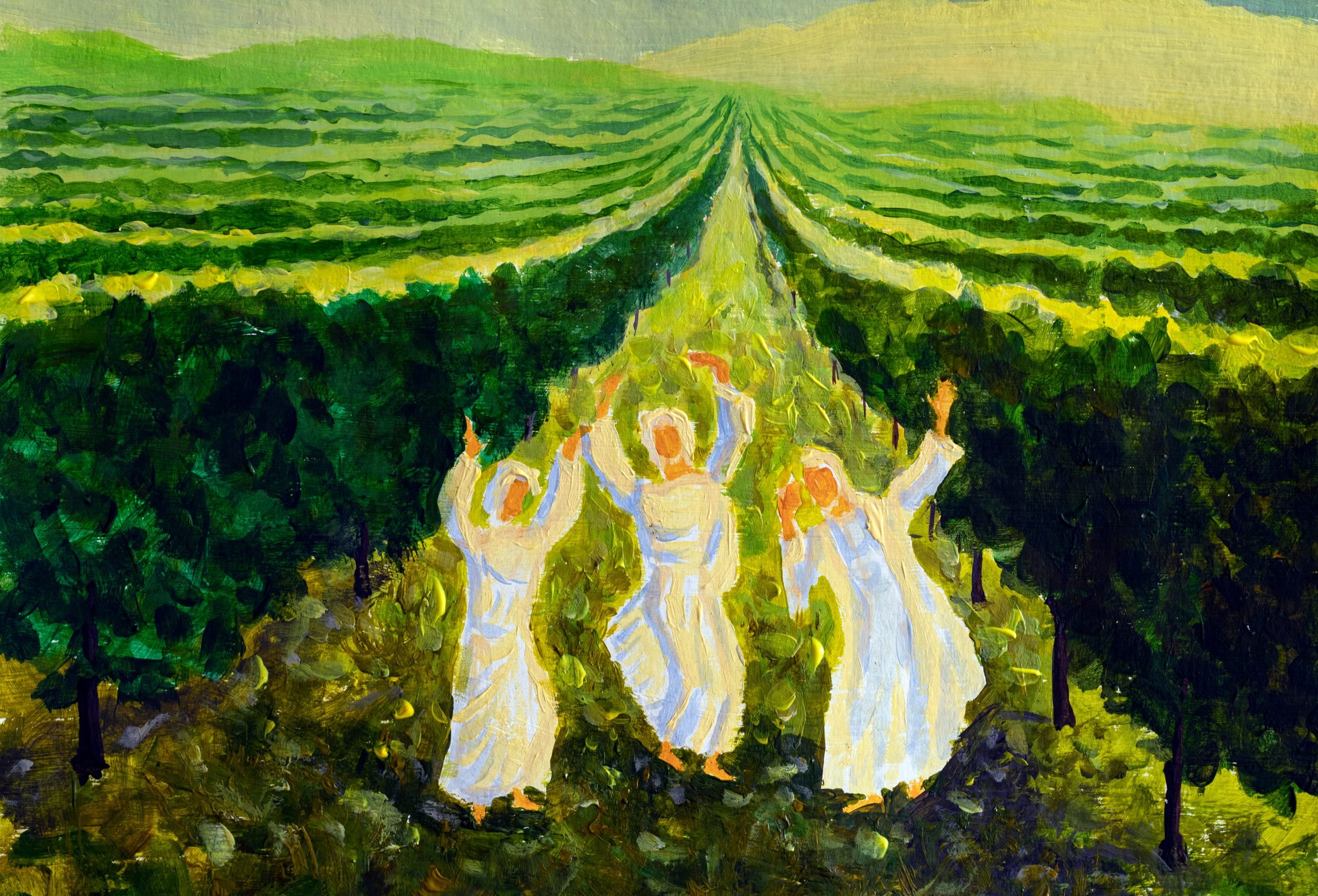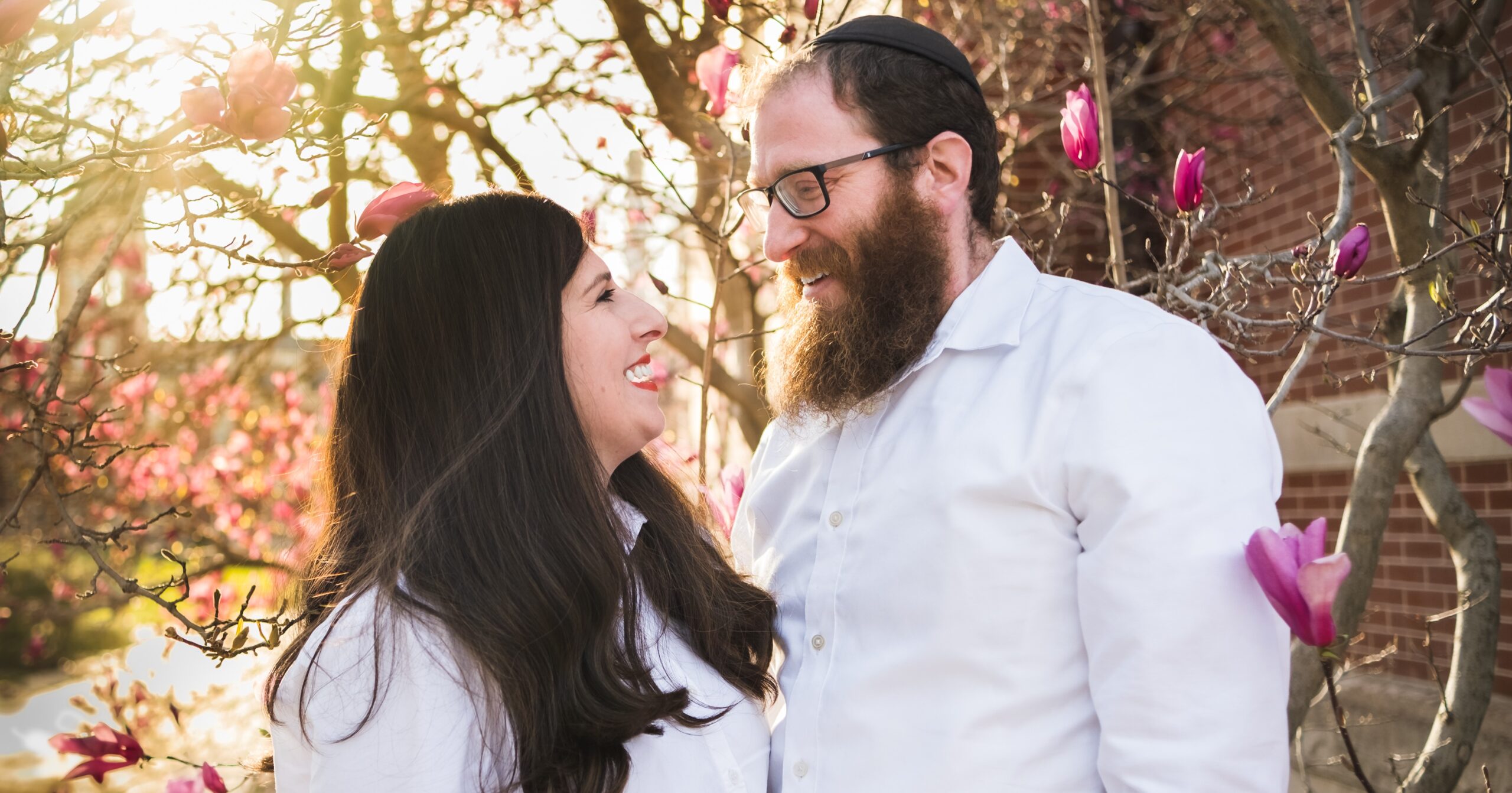Sunday night, August 18, 2024, is the start of Tu B’Av, or the 15th of the Hebrew month of Av, ending at sundown on Monday, August 19. This unique and lesser-known Jewish holiday celebrates couples and romantic love, for Judaism’s very own Love Day.

Learn about the fascinating history and unique customs of Tu B’Av!
Sunday night, August 18, 2024, is the start of Tu B’Av, or the 15th of the Hebrew month of Av, ending at sundown on Monday, August 19. This unique and lesser-known Jewish holiday celebrates couples and romantic love, for Judaism’s very own Love Day.

The earliest known mention of Tu B’Av in Jewish sources can be found in the Mishnah (the older part of the Talmud), which describes the 15th of Av as “the only festive holiday in the Jewish calendar that is as joyful as Yom Kippur.”
Considering the lofty significance of Yom Kippur as both the holiest day and the happiest day of the year, this statement might be surprising, but the Sages offer the following explanation: The reason why the Mishnah equates the joyfulness of Tu B’Av with the gladness of Yom Kippur is that both holidays notably share a theme of atonement. Just as Yom Kippur marks the day God forgave Israel for the Sin of the Golden Calf; likewise, Tu B’Av marks the day when God forgave Israel for the Sin of the Twelve Spies (which we commemorate, among other tragedies, on Tisha B’Av), giving us a worthy cause to celebrate.

According to the Talmud, it was customary for the unmarried daughters of ancient Israel to go out into the vineyards on the 15th of Av dressed all in white, to dance before single men in hopes of attracting a husband.
These young women would call out to their spectators, “Choose who will become your wife!” urging those watching to select their prospective brides from amongst the dancers. The profound beauty of this unique tradition is that it allowed many girls from impoverished homes to have a chance to find a husband, since their lack of dowries may have otherwise discouraged a potential match from expressing interest in them.
As such, during the times of the Temple, Tu B’Av was primarily a festival for matchmaking and marriage. This explains why even in modern times, Tu B’Av is still considered a good day for celebrating weddings or engagements. Furthermore, because Jewish tradition asserts that on his wedding day, a groom is forgiven for his sins (similar to Yom Kippur) this custom reinforces the idea that Tu B’Av is also ultimately a day of forgiveness.

For many centuries after the Jews' exile from the Land of Israel, very little was done to celebrate Tu B’Av, apart from omitting certain sadder prayers during services; however, this all changed with the re-establishment of Jewish independence in the State of Israel. The return of Jews to the Holy Land inspired a social movement focused on reviving forgotten aspects of ancient Jewish culture, including the celebration of “lost” biblical holidays like Tu B’Av.
Because of these efforts, over the past few decades Tu B’Av has been reborn as a modern holiday for celebrating love and romance, with many Israelis using the 15th of Av as an opportunity for a romantic night out or a chance to shower their significant others with romantic gifts symbolizing their commitment and love.

In some circles, the holiday has also taken on a feminist theme as a celebration of Jewish womanhood. Inspired by the dancing Israelite women of Temple times, Jewish women in some communities have been gathering in nature on Tu B’Av to dance and celebrate since at least early 20th century Europe.
While not everyone in more Orthodox circles has embraced Tu B’Av’s modern incarnation, a growing number of Israelis from the secular-to-modern Jewish communities have expressed enthusiasm for wider acceptance of this ancient-turned-modern holiday of love. It’s also growing in popularity in diaspora Jewish communities outside Israel, with an increasing number of Jews interested in both the romantic and the feminine aspects, and the holiday may eventually become even more popular than it is today!
Happy Tu B’Av from all of us at Judaica WebStore in Jerusalem!
Why not surprise your beloved with a special, romantic gift from Israel? Check out our Top 14 Romantic Gifts that Say “I Love You”, or our entire collection of gifts for loved ones here!


Owned by JWG Ltd, maintains its offices and warehouse in Jerusalem, Israel. © 1999-2022 JWG Judaica and Dead Sea Cosmetics